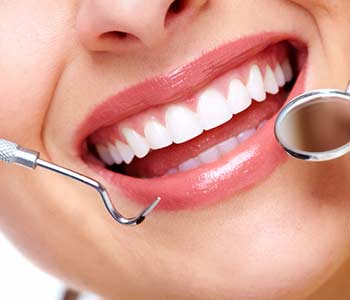
31
Dec
What Los Angeles CA patients need to know about root canal therapy

At Downtown Dental in Los Angeles, CA, we provide high-quality dental care and services. This includes root canals, which is a common procedure that is often feared. Root canals are known as being a painful procedure when in reality, they are a very safe and effective way to save a severely damaged tooth. In the following article, we will explain root canals and their value when performed by trained professionals like those at Downtown Dental.
What is root canal therapy?
When explaining root canal therapy and its importance, it’s a good idea to understand the basic anatomy of a tooth. While teeth appear to be a single, solid object, they are actually made up of several intricate layers.
- Enamel – The enamel is the visible, outermost layer of the tooth. Enamel is a hard, durable substance that is highly resistant to wear and tear. The enamel serves as the “protective” layer of the tooth.
- Dentin – Underneath the enamel lies the dentin, a more porous, tissue-like material.
- Pulp Chamber – Inside the middle of the tooth is the pulp chamber which houses a mixture of soft tissues including the nerves and blood vessels. Connected to the pulp chamber is the root canals that extend out to the bone.
When the pulp chamber of the tooth becomes infected or injured, root canal therapy is often the only way to save the damaged tooth and prevent the need for extraction.
How dental pulp becomes infected or injured
The pulp chamber of the tooth is very fragile, which is why in a healthy tooth it is well protected by the dentin and enamel layers. When a tooth becomes compromised the pulp can be damaged or infected. Some of the most common reasons for this occurrence include:
- Decay / Cavities – There are several things that can lead to cavities or decay. Consuming acidic or sugary foods and beverages and frequent snacking without proper oral hygiene can lead to cavities. Small cavities are generally easy to correct, however when they aren’t treated, they can continue to get larger and begin to affect the deeper layers of the tooth. Because the pulp chamber is much softer than the dentin or enamel layers, it erodes quicker. Once a cavity reaches that inner pulp and exposes it to harmful bacteria, the chances of infection rise quickly.
- Injuries – Everything from tiny fractures to broken teeth can lead to problems in the pulp chamber. A tooth that has broken due to trauma can leave the inner layers exposed and the nerves susceptible to injury and infection. Even teeth that have experienced micro-fractures are at risk of pulp injury. These microfractures are often caused by bruxism or oral trauma and can create a pathway for bacteria to reach the pulp.
- Gum Disease – Infections of the gum tissue can lead to pockets between the teeth and gums. If these pockets aren’t treated, the gum can recede far enough to expose the root and leave it susceptible to plaque build up and infection.
Signs that you may need root canal therapy

Because the pulp layer is hidden deep within the tooth, it requires a trained dentist with diagnostic devices to identify injured or infected pulp. Still, there are signs and symptoms you can watch out for that may indicate you need root canal therapy.
- Pain – The number one sign of infection or injury to the pulp chamber is the pain. Some people experience constant, throbbing pain while others may experience intermittent, sharp bursts of pain. Furthermore, some patients only experience pain during movement, such as when they stand up quickly or perform high impact exercises.
- Sores – If you notice pus pockets or mouth sores that don’t heal, this could be a sign of infection.
- Radiating pain – In addition to tooth pain, abscesses caused by infection can cause radiating pain out to the jaw, cheek, or neck.
The importance of root canal therapy
Root canal therapy addresses injured or infected pulp so that the tooth does not need to be extracted. Similar to a filling, a small opening is created in the crown of the tooth to access the pulp chambers and root canals. The dentist will remove any diseased pulp since it is in the process of dying and will then sterilize the area. The procedure is completed by filling the area to prevent reinfection and placing a dental crown over the tooth to strengthen and protect the weakened tooth.
To learn more about root canal therapy in Los Angeles, Call Downtown Dental at 213-863-9464.
Share this Article
![Dr. Don Mungcal]()
Dr. Don Mungcal
![Dr. Tara Mavadat]()
Dr. Tara Mavadat
![Dr. Ivan Chan]()
Dr. Ivan Chan
With over 28 years of experience and service, Dr. Mungcal makes it his responsibility to be the best version of himself by being his patients’ go-to point for any and all dental concerns. In addition to being meticulous in his work ethic, he is also an individual who understands development and change. He updates and informs himself constantly through various continuous educational programs that he undertakes. He also invests in the latest state-of-the-art technology to provide world-class dental services.
Dr. Mungcal graduated from UCLA and the University of the Pacific Dental School and is presently a member of several acclaimed medical associations, including the California Dental Society.
Dr. Tara Mavadat was always passionate about dentistry and is committed to helping patients achieve excellent oral health and beautiful smiles that last long. Having earned her Doctor of Dental Surgery degree from the University of the Pacific Dugoni School of Dentistry, she focuses on comprehensive general dentistry with an emphasis on preventive dentistry. Her primary goals are to provide comfort and quality as well as exceptional esthetic outcomes to every patient.
Dr. Ivan Chan is enthusiastic about dentistry and his patients' oral health and is dedicated to providing compassionate and effective care. He is a highly skilled dentist who received his undergraduate degree from the University of California, San Diego. He earned his Doctor of Dental Surgery (DDS) at the University of California, San Francisco School of Dentistry.
Dr. Chan has extensive training in general dentistry. He focuses on creating lasting smiles while attempting to prevent gum disease and cavities. He looks forward to assisting you with all your needs while assuring you that your trust is always in good hands, regardless of your needs!



